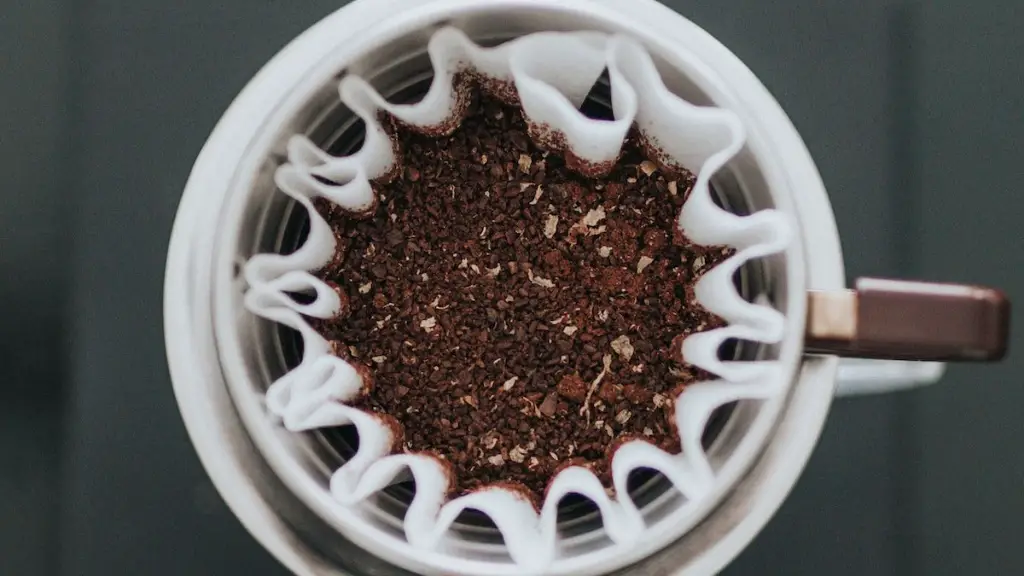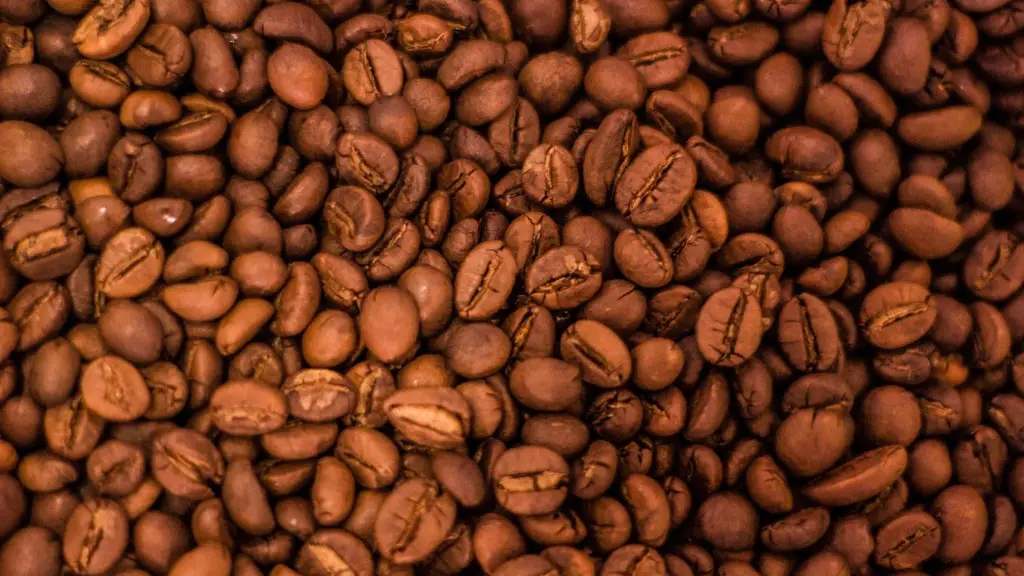Intermittent Fasting has grown in popularity in recent years as a way to lose weight, improve overall health and feel better. Many people wonder if they can still drink tea or coffee while they are fasting. The short answer to this question is yes, however, it is important to understand the significance of certain drinks and their effect on your intermittent fasting journey.
Intermittent Fasting is a weight loss technique that involves alternating periods of eating with periods of fasting. During the periods of fasting, you’re supposed to only consume things that do not contain calories, such as tea, coffee, and water. This means that if you’re doing intermittent fasting, it is perfectly alright to consume tea or coffee, provided that it does not contain any calories.
The biggest benefit of drinking tea or coffee while intermittent fasting is it can help you to feel energized and full. Drinking tea or coffee can temporarily curb your hunger and give you the energy boost you need to complete your intermittent fasting goal. Furthermore, certain types of tea and coffee can have health benefits that can help support your health journey. Caffeine consumption can also provide a temporary boost of energy as well.
However, it’s important to note that while you can drink tea and coffee while intermittent fasting, you should avoid adding any sweetener or cream. For example, adding sugar to your tea or coffee or adding cream will add calories and can break your fast, so it’s best to avoid these things. You should also be mindful of how much caffeine you consume, since too much caffeine can cause jittery feelings and disrupt your sleep patterns.
It’s important to remember that intermittent fasting is not a magical diet and it will require commitment and dedication to yield results. Just because you’re drinking tea or coffee while fasting, doesn’t mean you won’t have to watch what you eat. You will still be required to make healthy choices while eating as well.
Understanding Macronutrients
Sticking to a healthy diet that is rich in micronutrients and macronutrients is key to a successful weight-loss journey. Macronutrients are proteins, carbohydrates and fats and micronutrients are vitamins and minerals. It is important to ensure that your diet consists of enough protein and fat to help keep you feeling full and energized. Eating too many carbohydrates can cause an increase in body fat and should be avoided.
Protein and fat help with satiety and can reduce cravings. Healthy fats found in Olive oil, nuts and avocados, for example, can help increase satisfaction as well as help with digestion. Eating a balanced diet with enough macronutrients will keep your energy levels up and provide your body with the nutrition it needs.
Including healthy sources of carbohydrates is also important. Complex carbohydrates such as whole grains and leafy greens can provide your body with the necessary vitamins and minerals. Eating complex carbohydrates can help keep your energy levels stable and help regulate your blood sugar levels. Eating complex carbohydrates will help to ensure that you do not experience any feelings of lethargy or intense hunger while intermittent fasting.
The key to a successful intermittent fasting journey is to ensure that you are eating a balanced diet. Eating enough protein, carbohydrates and fat will help to keep your energy levels up and provide your body with the nutrition it needs, which will ultimately help you to stay on track with your intermittent fasting goals.
Making the Right Choices
Intermittent fasting is about making the right choices for yourself. Everyone’s body is different, meaning that intermittent fasting may not be the right choice for some people. Before starting intermittent fasting, it is important to consult with your doctor to determine if this diet is right for you. Your doctor can provide you with advice on the best way to approach intermittent fasting and any potential risks.
Intermittent fasting can also be mentally challenging as well. It is important to be honest with yourself about your level of commitment. You should set realistic goals and be willing to make changes and adjustments if necessary. You should also be aware of any potential triggers or slip-ups that may derail your progress. Having a support system in place and connecting with people who have gone through the same experience can help provide valuable insight and keep you on track.
Intermittent fasting can be a great way to jumpstart your weight-loss and health journey. While it is important to understand the implications of drinking tea and coffee while intermittent fasting, it can have benefits as well. The key is to find what works best for you, make sure you’re making healthy choices and stay committed to your health journey.
Caffeine Intake
Drinking tea and coffee can provide various health benefits and have a positive impact on your intermittent fasting journey. However, it is important to moderate your caffeine intake. Too much caffeine can lead to side effects such as jitteriness, headaches, and fatigue. We recommend limiting your caffeine intake to no more than 200 mg per day.
It is important to remember that caffeine is a stimulant and can affect your sleep patterns as well. Consuming caffeine after 2 pm can disrupt your sleep patterns and cause disturbances. Additionally, if you are feeling overly fatigued or exhausted, it is best to avoid caffeine. Instead, opt for herbal teas or warm water to help give you the energy boost you’re looking for.
It is also important to be mindful of the type of tea or coffee you are drinking. Stick to black tea and black coffee whenever possible to avoid any added calories or sugar. You should also look for caffeine free alternatives such as herbal teas or decaffeinated coffee, if needed.
Using Stimulants to Power Through Fasting
Using stimulants such as caffeine to power through intermittent fasting may seem like a good idea in theory, but it is important to remember that moderation is key. Consuming too much caffeine can cause jittery or anxious feelings and can even disrupt your sleep patterns. Additionally, it is important to remember that although drinking tea and coffee can temporarily curb hunger, it won’t stop cravings and should not be used as a remedy.
Remember that cravings are a normal part of dieting and it is important to make sure that you are eating a balanced diet with enough carbohydrates, fat and protein. Eating a balanced diet will help keep your energy levels up and help to regulate your blood sugar levels as well. The key to success when it comes to intermittent fasting is to make sure you are making healthy choices and staying committed.
Understanding Insulin Sensitivity
It is also important to understand the effect caffeine can have on insulin sensitivity. Insulin resistance occurs when your body becomes less sensitive to insulin. Consuming caffeine can reduce your body’s sensitivity to insulin which can affect your body’s glucose levels. If you are experiencing symptoms such as unexplained weight gain or fatigue, it may be a sign of insulin resistance.
The best way to manage insulin sensitivity is to make sure you are eating a balanced diet and exercising regularly. Eating complex carbohydrates such as leafy greens and whole grains can help to regulate your blood sugar levels and provide your body with the necessary vitamins and minerals. Exercise is also important because it can help to boost your insulin sensitivity and reduce your risk of developing insulin resistance.
Sleep Quality and Stress Levels
It is also important to consider your sleep quality and stress levels while intermittent fasting. Poor sleep quality can cause cravings, mood swings and fatigue, which can in turn affect your intermittent fasting goals. It is important to make sure that you are getting enough restful sleep and keeping your stress levels in check as well.
Maintaining a healthy lifestyle and creating a routine that works for you is key to a successful intermittent fasting journey. Eating a balanced diet, exercising regularly and getting enough restful sleep will set you up for success. Additionally, staying mindful of your caffeine intake and managing your stress levels will also help to ensure that you stay on track with your intermittent fasting goals.





